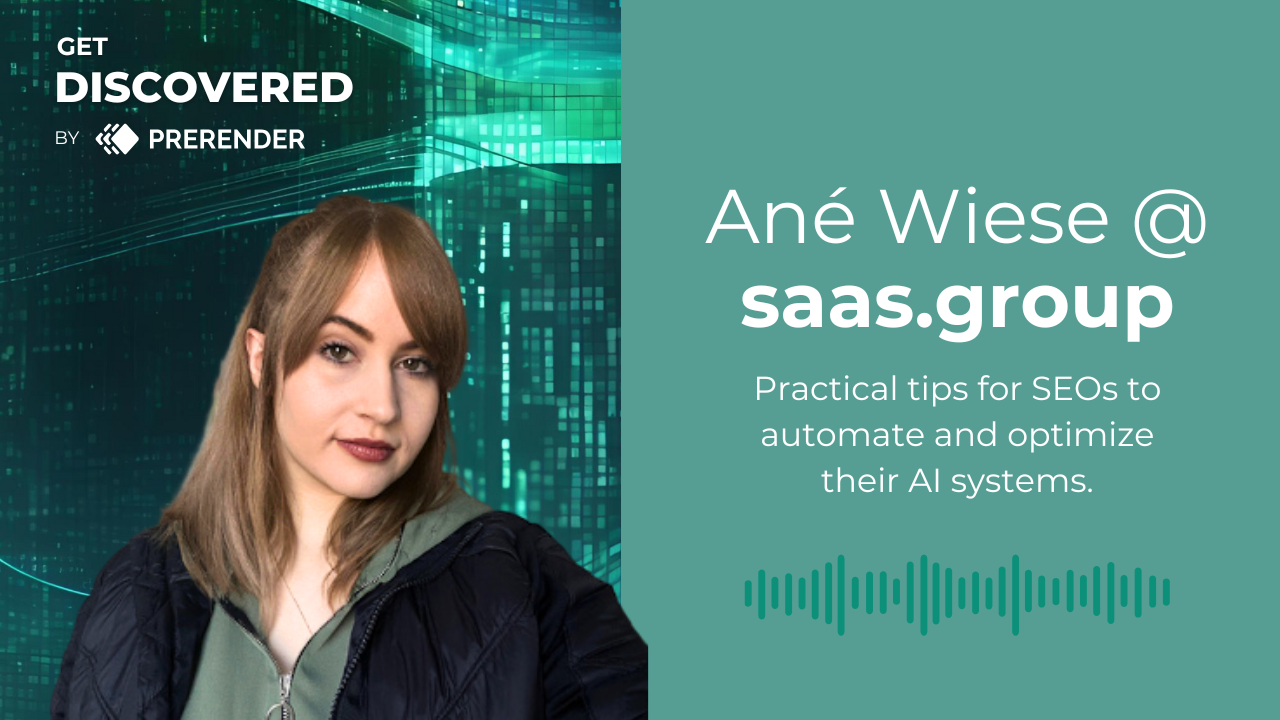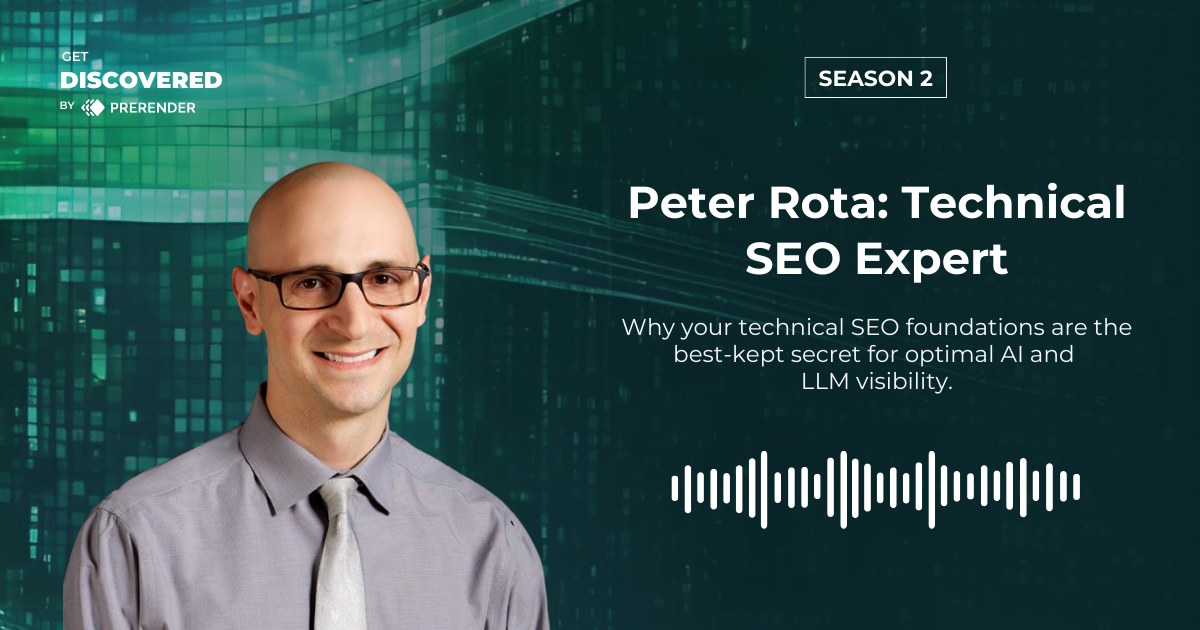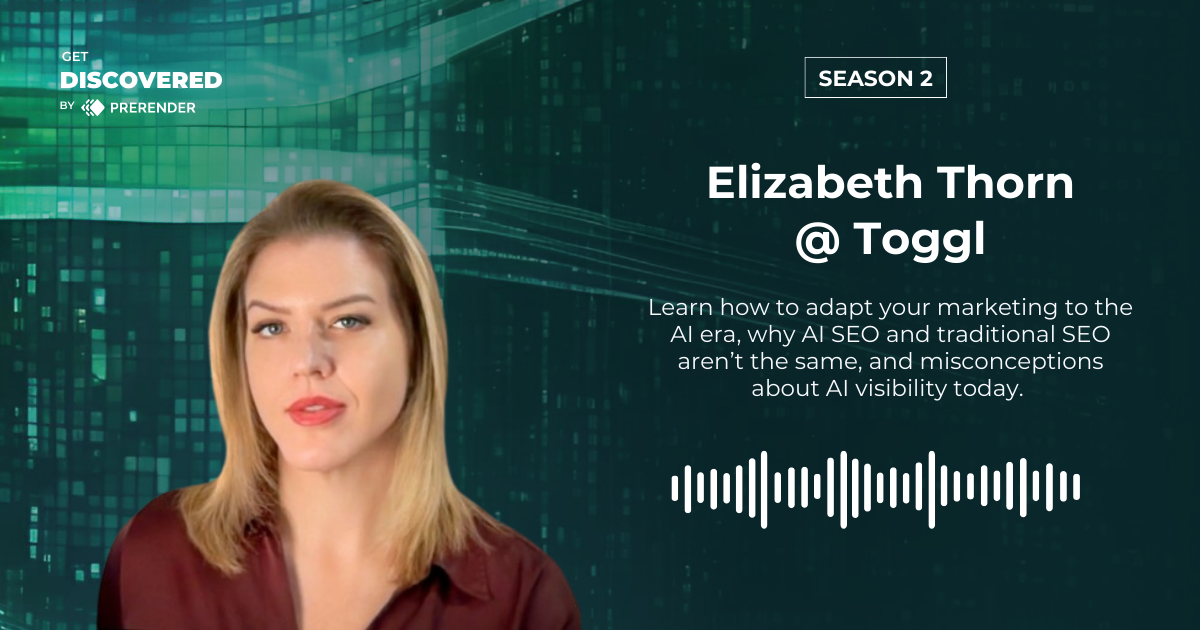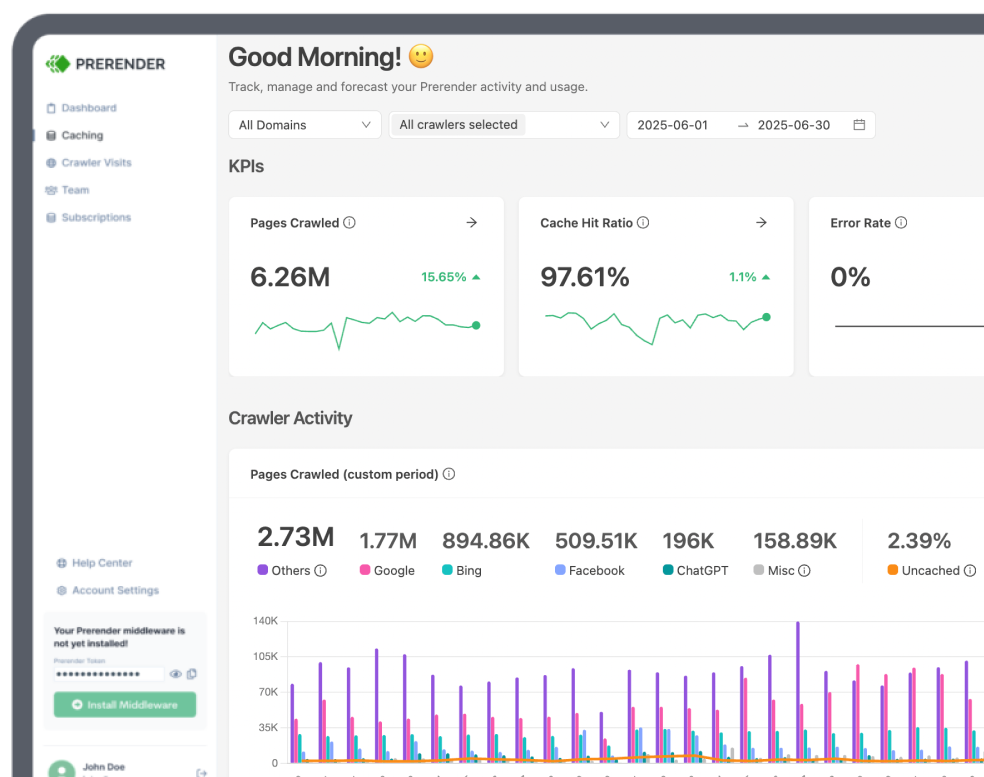AI is reshaping how SEO teams work, but not every change has been positive. In this episode of Get Discovered, Ané Wiese, SEO Lead at saas.group, joins Joe Walsh to talk about what it really looks like to integrate AI into day-to-day SEO.
From the rise of low-quality “AI slop” to the practical frameworks her team uses to evaluate automation, Ané shares how SEO professionals can embrace AI without losing the human judgment that still defines good content and strong visibility.
Watch the full episode below, or read on for a detailed summary.
“AI Slop” Content is Just a Phase
When asked about the current state of AI-generated content, Ané described what many in the industry have noticed: an overwhelming amount of repetitive, low-quality material filling feeds and search results.
She refers to it as what’s colloquially known as “AI slop.” But rather than viewing it as the new normal, she sees it as a temporary stage in the broader adoption of AI.
“It has to go through this phase,” Ané explains. “People will realize that producing content at scale with no quality control doesn’t bring long-term results. They’ll learn to use AI better.”
As audiences grow tired of generic AI output, Ané is confident that authentic, human-driven content will become even more valuable than before. The teams that combine AI tools with expertise and critical thinking will stand out once the novelty wears off. Here are some tips she recommends for SEO teams to implement AI into their workflow.
Three Tips for SEO Teams to Effectively Implement AI
1. Use AI as a Smart Assistant
Early on, Ané’s team had mixed feelings about AI. Like many SEO professionals, their first reaction was concern that automation might replace jobs. But rather than resist it, they decided to learn how to use it well.
They started treating AI as a smart assistant: a productivity tool that can take on repetitive SEO tasks while leaving higher-value strategy and analysis to humans.
At saas.group, AI now helps with:
- Generating image alt text and metadata
- Running simple on-site optimizations
- Automating parts of internal workflows through Relevance AI
The key, Ané says, is that these automations are not replacements for specialists. They are designed to save time and reduce manual effort while keeping experts involved in review and decision-making.
“Once it clicks, it’s actually quite addictive,” she says. “It frees us up to focus on deeper work.”
2. Build a Framework for Automation
To avoid over-automating, Ané’s team developed an internal framework to decide when it makes sense to use AI.
They ask questions such as:
- Does this task create real value, or is it just a gimmick?
- What would it cost in time and maintenance to automate it?
- What happens if the AI gets it wrong?
- Does a human need to review the output?
For low-risk tasks like image alt text, automation can run freely. For anything involving customer-facing content or pricing, humans remain in control.
This process helps prevent what Ané calls “agent graveyards,” stacks of half-finished automations that add complexity but no real benefit.
3. Prioritize Human Review
Throughout the conversation, Ané returned to a simple truth: Large Language Models (LLMs) are prediction engines, not fact-checkers.
“Even when AI sounds confident and polished, it can often be wrong,” says Ané. That is why human review is essential.
Her team uses tools like Screaming Frog to crawl websites and check AI-generated metadata and alt text for contextual accuracy. For more advanced automations, they stop the process before publishing so a human can make final edits.
“If you ask AI about something you’re an expert in, you’ll see its limits immediately,” she says. “It can sound impressive, but it’s not always accurate.”
The Future of Search: Authenticity and Trust Will Matter More
Ané also touched on the growing challenge of authenticity in an AI-driven web. From fake product founders to automated videos, she sees an increase in content that looks real but isn’t.
Her prediction? That users will eventually become more skeptical and selective about what they trust. For brands, that means being transparent about who is behind their content and showing that real people are involved.
“You want customers to know there’s a real team behind the product,” she says. “That creates trust and certainty.”
Looking ahead, Ané expects AI to evolve toward productivity-focused applications: tools that help experts work faster and more efficiently rather than generate content for them. She sees AI’s greatest value in automating parts of analysis and workflow, not replacing human creativity or strategic thinking.
“I want to give AI my knowledge and have it do something with it,” she says. “Let the experts stay experts, and let AI handle the parts that slow us down.”
Listen to the full episode with Ané on Spotify, Apple Podcasts, YouTube, or wherever you like to listen.
About the Get Discovered Podcast
Get Discovered is a podcast from Prerender.io on AI, SEO, and online discoverability. We speak with business leaders, SEOs, and AI experts on how AI is impacting our world—and what you can do to keep up.



